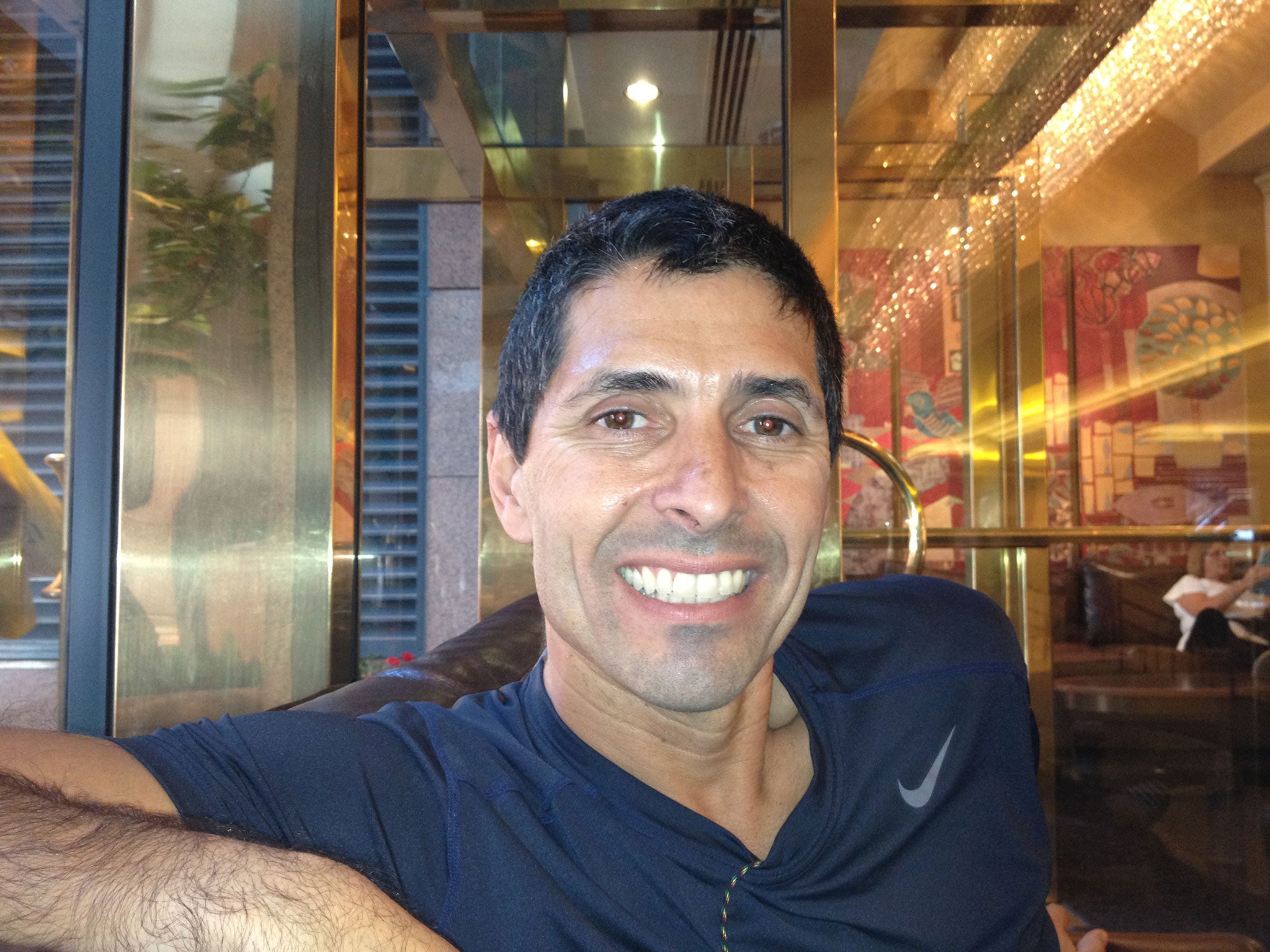Prisoner locked up for decades describes what it’s like to rejoin society
Michael Santos was in prison for 26 years and speaks of sitting in a car with his wife and holding an iPhone in his hand for the first time

Your support helps us to tell the story
From reproductive rights to climate change to Big Tech, The Independent is on the ground when the story is developing. Whether it's investigating the financials of Elon Musk's pro-Trump PAC or producing our latest documentary, 'The A Word', which shines a light on the American women fighting for reproductive rights, we know how important it is to parse out the facts from the messaging.
At such a critical moment in US history, we need reporters on the ground. Your donation allows us to keep sending journalists to speak to both sides of the story.
The Independent is trusted by Americans across the entire political spectrum. And unlike many other quality news outlets, we choose not to lock Americans out of our reporting and analysis with paywalls. We believe quality journalism should be available to everyone, paid for by those who can afford it.
Your support makes all the difference.A man who served almost three decades in prison has written at length about re-entering society after being released.
Michael Santos, who served more than 26 years of a 45-year sentence, speaks about sitting in a car with his wife and holding an iPhone in his hand for the first time, in a recent post on Quora.
"The thought of being released from seemed surreal," he writes.
"For decades I’d thought about being released, and I’d planned for being released. But on that Monday morning, I didn’t quite know how to process the reality that my day had come.
"I climbed down from my rack before 3am, filled a cup with instant coffee, and then I walked to a common area of the prison. I wanted to be alone, to sit and look around. I fixed my eyes on the steel beams above, looked at every detail of the architecture, and I smiled when I thought that in only a few hours, I would walk outside of prison boundaries for the first time in a quarter century.
"It didn’t really make sense to me. I couldn’t comprehend why we equated justice with decades in prison."
He went on to recount his reunion with his wife.
“Sitting in a car with her for the first time was wonderful, but it was also wonderful to hold my iPhone for the first time," he writes.
"She showed me how to use it, then she fed me pizza from a real pizzeria."
He openly admits that his experience in prison wasn’t like that of others. He says he chose not to focus on “the indignity of long-term imprisonment” and instead focus on preparations for release.
“First I worked to educate myself, then I worked to build my support network, then I worked to prime possibilities for a career,” he explains.
The 51-year-old was arrested at the age of 23 for leading a scheme to distribute cocaine and "operating a continuing criminal enterprise."
Unlike many others who leave prison after long-term sentences with no support network and little money, Santos had a substantial savings account, a wife and clear ideas on how to build a career out of his 25-year stay prison.
He has used his prison stay as inspiration to help others and now works toward helping others who are being prosecuted by the criminal justice system.
His foundation, The Michael G. Santos Foundation has developed programmes to help people emerge from the prison experience successfully and move into the labour market.